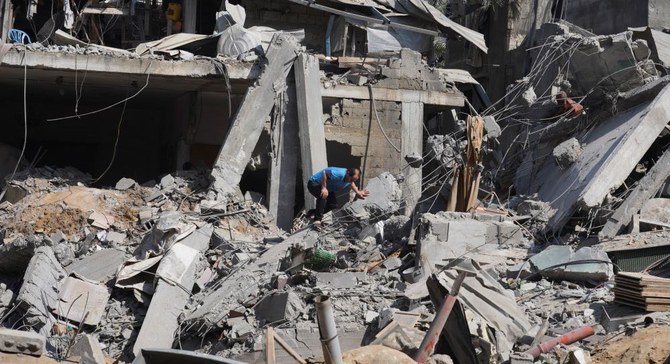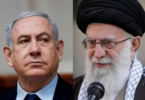Mohamed Chebaro
Suddenly, the Israel-Gaza war is center stage again. But what has changed? We all know that this war has been simmering for decades, exploding intermittently, as is the case in Gaza today and in the West Bank over the past few months. In the wider context, there are also the intermittent skirmishes with Hezbollah in Lebanon and the periodic Israeli attacks on Iranian and pro-Iranian groups stationed in the broken, post-revolution Syria. Not to forget the so-called shadow wars fought between Iran and Israel everywhere in the world, including on Iranian soil in the form of deniable assassinations or sabotage-related operations targeting Iran’s nuclear program, or on the high seas, where Israeli and Iranian maritime assets become entangled in tit-for-tat attacks – often deniable of course.
So, when Israeli Prime Minister Benjamin Netanyahu claimed that Hamas militants may have committed their biggest mistake, I am not sure what he meant. Maybe he forgot that his country has occupied Palestinian lands, fragmented their territories, built illegal settlements and given carte blanche to ultrareligious Jews, allowing them to harass Palestinians and desecrate their religious sites.
Hamas’ resistance is not new, nor are its motives, and many say that Netanyahu has long been an enabler of the group, letting it rule Gaza to encourage further Palestinian division and to give the impression that the Palestinians lacked the leadership and unity to strike a peace deal with Israel. Hamas has been involved in killing and maiming Israelis through a string of suicide bombing campaigns since the mid-1990s. And Netanyahu’s successive Likud governments have led military reprisals that inflicted equally painful damage, if often disproportionately against the Palestinians. However, all that sucked the oxygen out of the peace process, which neither Netanyahu nor Hamas never believed in anyway.
Deploying ruthless force and setting aims like denying Hamas a future base in Gaza are driven by rage and anger. They reflect the desperation on the part of Israel to “win,” or to “do or die,” in a conflict that has dotted the last 75 years with insecurity, wars and suffering for all parties. Many in the Middle East have come to call it the “forever war.”
The outpouring of support by Western leaders and their vows to stand by Israel in its “darkest hour” after losing more than 1,400 of its citizens in a daring Hamas incursion, along with the capture of some 200 civilian and military hostages, was understandable. But this should not justify stating the necessity of Tel Aviv “winning,” as expressed by the UK prime minister and others. The “Israel must win” slogan, repeated by many in the past two weeks, clearly demonstrates a poor grasp of the problem at hand. A failure to contain the Israeli revenge drive – or, as they say, to reset their army’s strategic supremacy – could engulf the region in several fires of asymmetric warfare that will lead to the further loss of life and harm to civilians not only in Palestine, but across the volatile Middle East. It is no secret that US President Joe Biden, during his visit to Israel last week, sought to contain the conflict, although he did that while pledging total support to Israel and the urgent dispatch to the region of two naval battle groups. Washington has tried to dissuade the Israelis from pursuing a scorched-earth policy against Hamas in Gaza, with Biden’s intensified diplomatic efforts with Arab leaders, such as those in Egypt, Jordan and Saudi Arabia, a clear example of that.
Fearing a humanitarian catastrophe, the US has managed to pressure Israel to allow some aid in through Egypt and it has been working around the clock diplomatically to prevent a further fanning of the fire beyond the Occupied Territories to neighboring Lebanon, where Iranian proxy Hezbollah has been exchanging fire across the border with Israel, and further afield. For example, the Iran-aligned Houthis in Yemen have launched several missiles and drones in Israel’s direction, only for them to be intercepted by US ships in the Red Sea. Biden’s cautiousness should not go unheeded by Israel. Nor should his remarks that, while Israelis might feel rage, they should not be consumed by it, as that could lead to them making mistakes. He alluded to the US’ own mistakes in the wake of 9/11. I could also say that “win” is a term that should not be used in a region where conflicts are interminable, complex, multilayered, laced with state and nonstate actors, and made more intricate by a weaponized religious zeal that often renders reason redundant. Also, it is important to know that the fight between Israel and Hamas does not resemble the war on terror against Al-Qaeda two decades ago, nor is it similar to the international coalition to fight Daesh in Iraq and Syria from 2014. In both these instances, the militants were a kind of franchised foreign fighter, waging international campaigns of terror despite having no connection to the local population or a cause similar to the Palestinians’ fight for a state. Hamas militants, like it or hate it, are part of the social fabric of Gaza and are fighting for a cause that is shared by many Palestinians.
In the past, it was possible to prevail over Al-Qaeda and pursue and kill its leaders after weeding them out from Afghanistan. In the case of Daesh, that was possible too. Even Israel’s invasion to dislodge the Palestine Liberation Organization from Lebanon in 1982 could not have yielded fruit if it were not for the Syrian regime continuing the job of the Israelis for its own geostrategic interests. It suffocated what was left of the PLO on Lebanese soil, only for Hezbollah, a client of Iran and Syria, to emerge as a key militant nonstate actor that continued its cross-border posturing long after the Israeli troops’ withdrawal from Lebanon in May 2000. This is why efforts should be focused on de-escalation and giving civilians access to basic humanitarian supplies not as a charity but as a right. Meanwhile, mediators and foreign powers must use all the influence they possess to try to secure the release of the civilian hostages. This is the first step toward trying to prevent an all-out, hasty and surely costly invasion, in terms of both civilian and military casualties on both sides.
The notion of winning by destroying Hamas for good is very unrealistic. Its advocates have not grasped what the history of similar conflicts has taught us. It is very dangerous to aspire to remove an organization that is so deeply entrenched in the social fabric and which receives help from a strong state actor like Iran. Tehran has long used asymmetric warfare to achieve its goals and has projected its power by meddling in the affairs of various countries, from Iraq to Lebanon and from Palestine to Yemen and Syria, weakening their central state organs to the benefit of militant groups. The world after the Russian invasion of Ukraine is divided and the war in Gaza, if it stretches beyond the borders of Israel and Palestine, could increase the splintering, potentially destroying what is left of multilateralism and the key tenets of peace and stability.







